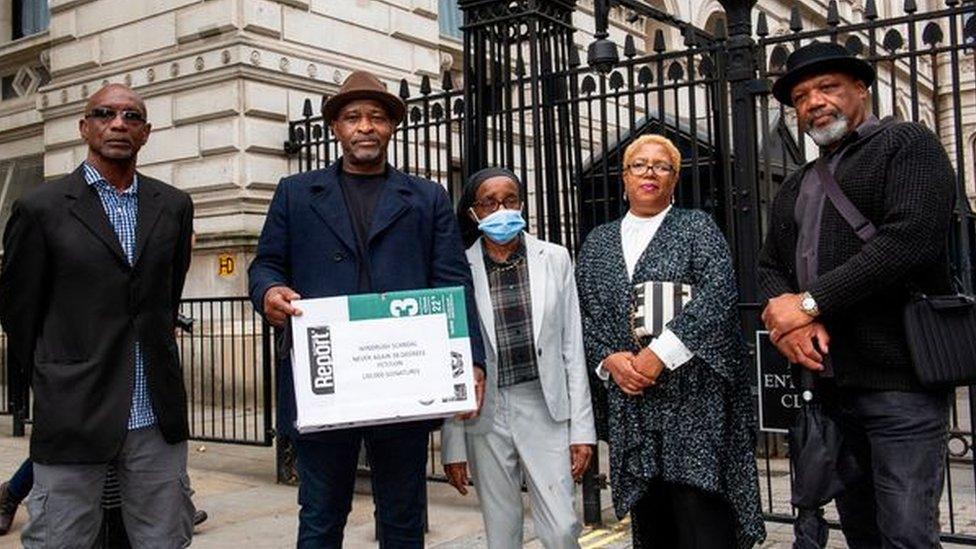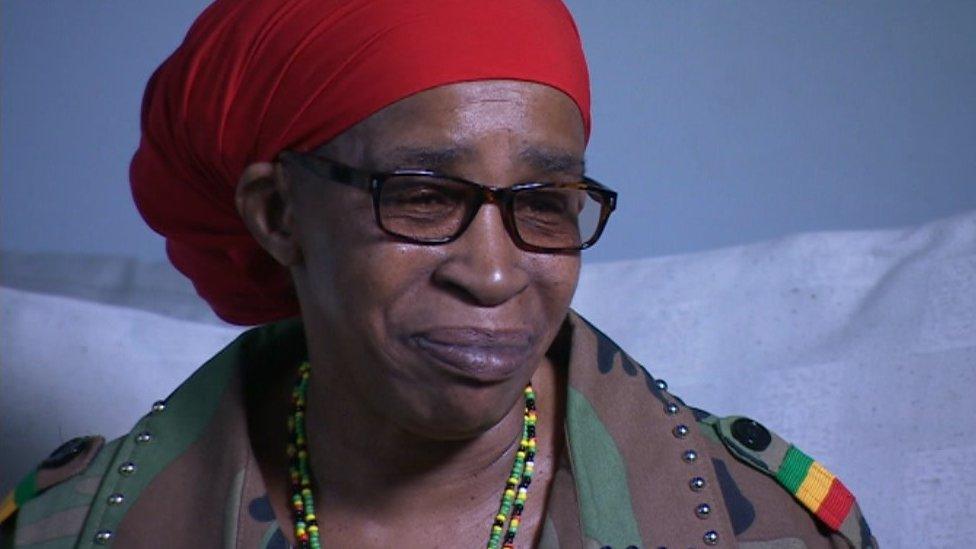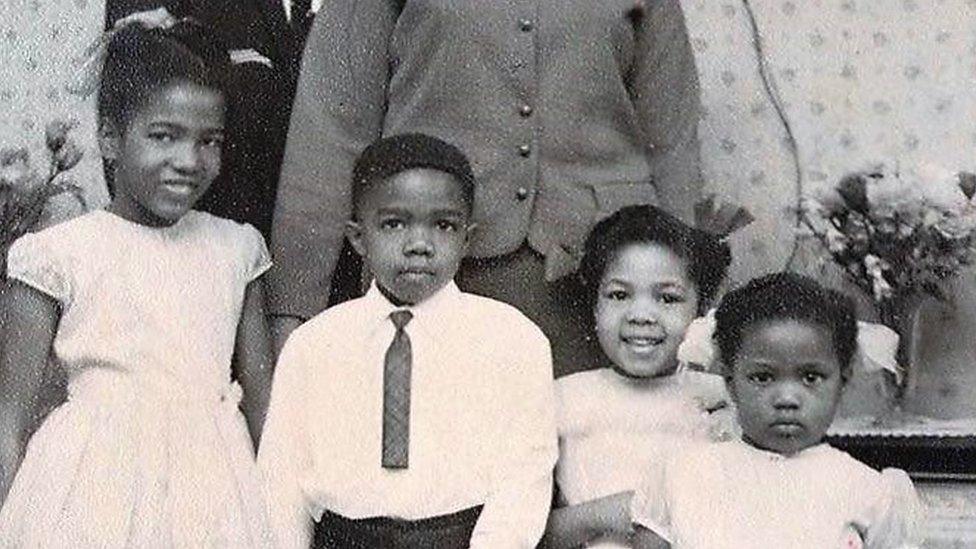Windrush: At least nine victims died before getting compensation
- Published
Glenda Ceasar explains her compensation bid over the Windrush scandal.
At least nine people have died before receiving money applied for through the Windrush compensation scheme, according to Home Office figures.
The Windrush scandal saw deportation threats made to the children of Commonwealth citizens.
Despite living and working in the UK for decades, many were told they were there illegally because of a lack of official paperwork.
The government apologised in 2018 and the compensation scheme was launched.
It was intended to help those who did not have the right documentation to prove their status in the UK.
It's also meant to compensate victims for things such as loss of earnings and periods of detainment.
But the Home Office figures, released to the BBC under Freedom of Information laws, show that in addition to people dying before they receive any money, fewer than five people have been offered the top level of "Impact on Life" payment.
These payments reflect how badly a claimant's life was affected and range from Level 1 - essentially a minor inconvenience worth £250, to Level 6 - a profound and likely irreversible impact worth £10,000 or more. More than 1,500 claims have been made using the scheme, with 250 being offered an "Impact on Life" payment.
The figures are correct as of 31 August.
Glenda came to the UK from Dominica in 1961 before her first birthday.
In 2009 she lost her job as a GP's practitioner as she didn't have the paperwork to prove she could legally work in the UK.
'Shocked'
Glenda, who lives in Hackney, east London, was unable to work for almost 10 years and in this time could not claim welfare. After being detained for several hours at Gatwick airport following a family holiday, she was told if she left the UK again she would likely not be allowed to return.
Last year she rejected a compensation offer of £22,000 and has since rejected a further offer.

Campaigners take their case to Downing Street
"I was shocked," she says, "to get a letter saying we're offering you £13,000 for loss of employment, we're offering you £7,000 for Impact on Life and we're offering you £1,500 for detainment.
"I was like, there's something wrong somewhere, I have to go public with this, this isn't fair."
Glenda, who contemplated taking her own life during the period in which she could not work, says her anxiety levels have been affected by the compensation process.
"It's stressful, it's long, it's tiring and the whole process of doing the compensation form is something you cannot do by yourself, you definitely need legal help.
"You call them up and you're not getting directly through to the person who's supposed to be allocated to your case and that alone just raises your stress level, because you're getting more angry because you're not getting a result.
"'It's in process.' 'Okay what's the process?' 'I can't say anything.' 'But it's about me, why can't you tell me? Can you get the caseworker to call me?' 'I don't know if we'll be able to do that.' No one wants to answer directly."

Paulette Wilson, from Wolverhampton, died aged 64 without receiving her compensation
Holly Stow, a senior caseworker at the North Kensington Law Centre, which represents almost 50 Windrush claimants, including Glenda, says no one she represents has ever received an "Impact on Life" offer in the top level.
"We've seen various claimants where they have been detained, threats of deportation, they've lost their jobs, they've lost their house, they've been homeless.
"We've submitted evidence where people have gone to their GP and mention they're feeling suicidal, considering self-harm and even that type of evidence is not enough for a Level 6.
"So it makes you wonder, what do these people have to go through to be able to show that their life has seriously been affected by this?"
She says the Home Office has asked some of the people she represents for evidence that no longer exists.
"The delays come from caseworkers asking for further documentation and evidence that we've already supplied to them, asking for documents that simply are not there and we cannot gather."
'High profile case'
Earlier this year, one of the most prominent Windrush victims, Paulette Wilson, died aged 64 without receiving any compensation.
The Home Office says Paulette had not completed an official application through the Windrush Compensation Scheme
Glenda, who campaigned alongside Paulette, says her death, along with the revelation that at least nine claimants have now died, has people worried about the likelihood of claims being resolved.
"It's made people realise, my God she was a high profile case and to know that they still haven't sorted out her compensation, well what are they doing?"
"It's such a straightforward thing, but they make it so complicated and turn it into something which is causing a lot of anxiety to people and some people give up.

Glenda Caesar (second right), who came to the UK in 1961, was 'shocked' by the offer
"I don't want to hear another person's died through stress, I don't want to hear that at all and that's exactly what is happening to our age group."
Holly says some claimants have been making plans for what should happen to their compensation claim if they pass away before it's resolved.
"For people to have to think ahead about the fact that they might die before having any compensation is a terrible state of affairs.
"After all that people have been through because of the Windrush scandal, and now they have to plan their death around their justice?"
A Home Office statement said, "We are determined to right the wrongs of the Windrush generation, and the Windrush compensation scheme has paid out or offered more than £2.8m, with more offers being made every single week.
"We continue to work with families to ensure compensation is still paid out where claimants have sadly passed away.
"While we aim to process claims as quickly as possible, it is important we get this right, and that we carefully consider each person's circumstances and experiences, treating everyone with the care and sensitivity they deserve.
"This will mean that the maximum payment can be made to every single person."
Listen to this story on BBC Radio 4's The Westminster Hour